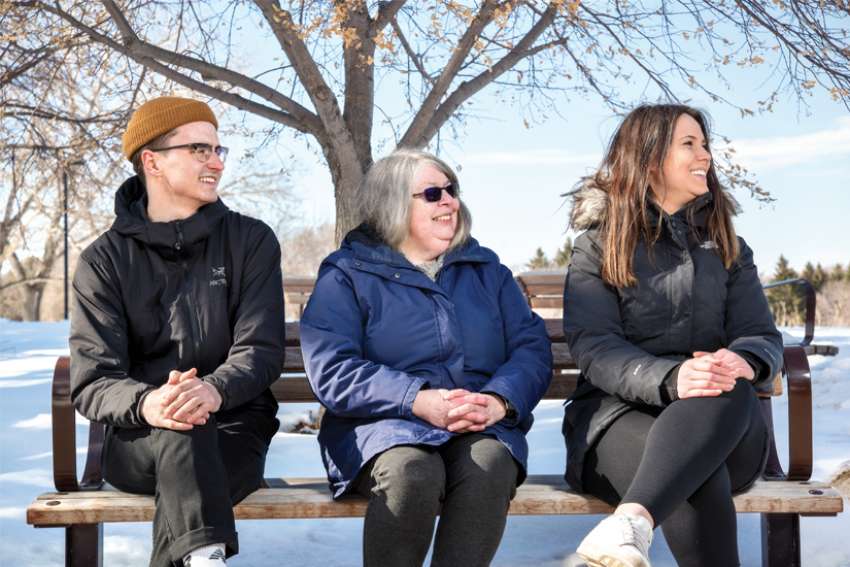Janelle Gerard and Calum Neill of the University of Regina’s Campion College experienced this rarefied air in 2019 for their study “Nature contact and mood benefits: Contact duration and mood type.”
This analysis, co-authored with their professor Katherine Arbuthnott, unearthed among its findings that a person’s mood improves substantially by being outside in nature for merely five minutes.
Now imagine you are Arbuthnott, who has been on faculty at Campion since 2004. The thrill is quite similar. Empowering students to tap into their ambition, curiosity and intellect to design robust and meaningful experiments perennially thrills the long-time educator.
“The thing I enjoyed the most about this experience was that the two honour students stepped forward and took ownership of this project,” said Arbuthnott. “They now have this study on their resume, so if they are looking at attending grad school, they are much more likely to get into grad school.”
Arbuthnott also loves witnessing students enjoy a “eureka” moment in the classroom.
“Those moments are what we live for. It is exciting and satisfying to see students identify possibilities for themselves that they didn’t see before. We hope to experience that all the time with each of our students,” she said.
These moments are harder to create when you are leading a lecture virtually on Zoom rather than being in a physical classroom, the reality of the fall semester and maybe beyond.
“The skills I have developed over the years in forming relationships don’t apply this year,” said Arbuthnott. “I don’t get to see student facial expressions in response to what I say, and I don’t get to build the conversations in lectures based on what I hear from them. There is none of that this year.”
Arbuthnott works hard, though, to ensure she is continually in direct contact with each pupil to help them receive the most dynamic learning experience possible under conditions dictated by the ongoing COVID-19 pandemic.
To help illuminate how her teaching methodology is altered by the current landscape, Arbuthnott provided The Catholic Register with the January 2019 and September 2020 rubrics for her Psychology and Environmental Change course. The first change that jumped out is how Arbuthnott had to redesign her grade distribution structure. Participation in classroom discussions and a midterm exam accounted for 45 per cent of a student’s mark in January 2019. Those methods were scrubbed from the outline in 2020. In its place, students are tasked with completing seven online quizzes worth five per cent each and composing a reflection paper about their experiences with the pandemic.
A second significant change is the assignment components required for the capstone community assignment, which is still worth 35 per cent of a student’s grade. Before COVID-19, Arbuthnott tasked her students with 12-15 hours volunteering to help a community agency working on environmental sustainability in some fashion or developing a lobbying campaign of their own (also requiring time in the community). Now, students will either craft a letter of action to a political representative about a researched environmental subject of their choice or submit an op-ed article about an issue they care strongly about to a news publication.
“At Campion, we have a well-developed engaged learning program where we have a person who helps us connect with community agencies so that students can practise the skills and knowledge they are learning in the classroom,” said Arbuthnott. “Of course, that is off the table this year, but we still wanted to connect to the community through these assignments.”
When asked if there are any silver linings of the current landscape, Arbuthnott said she has embraced “being in problem-solving mode” as she reinvents her courses for a new medium.

